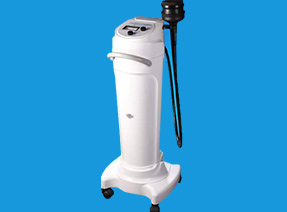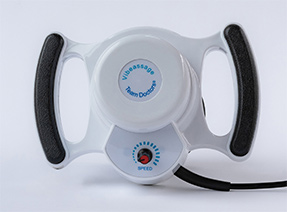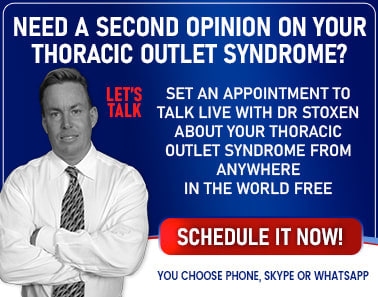Research suggests that thoracic outlet syndrome most frequently occurs following a single episode of neck trauma such as a sports injury.
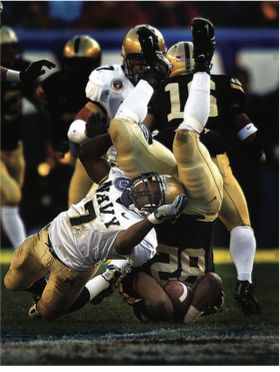
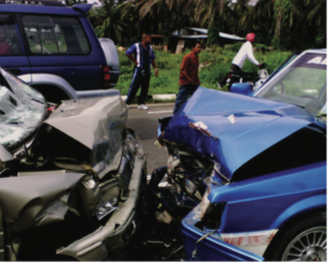
Motor vehicle accidents resulting in whiplash are the most common causes of neck injuries with approximately 1,000,000 per year in the United States (3).
An acute injury of the muscles and joints will stimulate the receptors in the joints to alert the brain that there is an injury. The brain will then respond with a sustained, tonic, protective reflex muscle spasm that will cause compression forces on the neck, back, and shoulder. These muscle spasms cause progressive narrowing of your thoracic outlet.
Quite often, injured car accident individuals had stopped for a red traffic light, when another vehicle hit them from behind. A force like this hyperextends the neck and stretches the scalenus muscles. These muscles stretch, bleed, hypertrophy, and shorten. This process further narrows the already crowded triangular tunnel through which the neurovascular bundle passes (2).
Injuries like this, especially a blow or jerking injury to the region of the neck or shoulder, can cause a chronic muscle spasm—which might precipitate the syndrome (4). This can occur even with minor impacts during car accidents (5). By the way, according to statistics, persistent neck pain is more common in women than men by a ratio of 70:30. (2)
Acute (Whiplash) vs. Chronic Causes
I’ve found that patients with whiplash show a distinct pattern of trigger point distribution that differs significantly from other patient groups and healthy subjects. The trauma might cause scalene muscle injury, resulting in swelling of the area of the anterior and middle scalene muscles. This will show up as swelling in the front of the neck. On lean individuals, you should be able to see the muscles through the skin in the front and sides of the neck.
The best way to tell if your neck is inflamed or swollen is to look at your neck and shoulders in the mirror or take a selfie to see if you can see the outline of the muscles in the neck and the outline of the collarbone.

If these structures are obscured, then perhaps you have inflammation of the area due to the injury of the scalene muscles and other muscles of the neck. For some of you, it might require you to look at old photographs to see if you had the swelling prior to the accident.
In an auto accident injury like this, it is normal for scar tissue to form in the scalene muscles (6), which could result in less-flexible, toughened, stiff muscle tissue surrounding the bundle of nerves and the artery that comes out between these muscles. One study showed a significantly increased amount of muscle scarring in the scalene muscles in those with thoracic outlet syndrome compared to those without (6).
Why do auto accidents cause chronic musculoskeletal pain and chronic thoracic outlet syndrome in so many people? You have a similar impact force with tackles in contact sports like football, which should cause the same strain on the neck, upper back, and shoulder as an auto accident. The athletes seem to recover from 20 to 50 hits every week, while you might have one hit and you are in chronic pain for the rest of your life.
The reason they can handle these hits is because they are trained athletes, who train their upper body for these impacts. They have a greater amount of spring strength, improved resting tone, and spring stiffness to protect them from these hits.
They prepare for the hits in their spring strength training.
Think about it—how many of you include shoulder shrugs to develop the trapezius and levator scapula to reduce the risk of the shoulder impacting or compressing the blood vessels and nerves in the thoracic tunnel?
I will teach you this training routine in Chapter 14, “Spring Training.”
If you were injured in a sports injury or auto accident and need treatment contact our office at 773 735 5200 for an appointment.
References
- Mandel S. Neurologic syndromes from repetitive trauma at work. Postgrad. Med. 1987;82:87–92.
http://www.ncbi.nlm.nih.gov/pubmed/3671210 - Evans RW. Some observations on whiplash injuries. Neurol Clin. 1992 Nov;10(4):975-97.
http://www.ncbi.nlm.nih.gov/pubmed/1435666 - Razi DM, Wassel HD. Traffic accident induced thoracic outlet syndrome: decompression without rib resection, correction of associated recurrent thoracic aneurysm. Int Surg. 1993 Jan-Mar;78(1):25-7.
http://www.ncbi.nlm.nih.gov/pubmed/8473078 - Brantigan CO, Roos DB. Diagnosing thoracic outlet syndrome. Hand Clin. 2004 Feb;20(1):27-36.
http://www.ncbi.nlm.nih.gov/pubmed/15005381 - Brantigan CO, Roos DB. Diagnosing thoracic outlet syndrome. Hand Clin. 2004 Feb;20(1):27-36.
http://www.ncbi.nlm.nih.gov/pubmed/15005381 - Sanders R.J., Jackson C.G.R., Banchero N. Scalene muscle abnormalities in traumatic thoracic outlet syndrome. Am. J. Surg. 1990;159:231–236. doi: 10.1016/S0002-9610(05)80269-7.
http://www.ncbi.nlm.nih.gov/pubmed/2301718/

Dr James Stoxen DC., FSSEMM (hon) He is the president of Team Doctors®, Treatment and Training Center Chicago, one of the most recognized treatment centers in the world.
Dr Stoxen is a #1 International Bestselling Author of the book, The Human Spring Approach to Thoracic Outlet Syndrome. He has lectured at more than 20 medical conferences on his Human Spring Approach to Thoracic Outlet Syndrome and asked to publish his research on this approach to treating thoracic outlet syndrome in over 30 peer review medical journals.
He has been asked to submit his other research on the human spring approach to treatment, training and prevention in over 150 peer review medical journals. He serves as the Editor-in-Chief, Journal of Orthopedic Science and Research, Executive Editor or the Journal of Trauma and Acute Care, Chief Editor, Advances in Orthopedics and Sports Medicine Journal and editorial board for over 35 peer review medical journals.
He is a much sought-after speaker. He has given over 1000 live presentations and lectured at over 70 medical conferences to over 50,000 doctors in more than 20 countries. He has been invited to speak at over 300 medical conferences which includes invitations as the keynote speaker at over 50 medical conferences.
After his groundbreaking lecture on the Integrated Spring-Mass Model at the World Congress of Sports and Exercise Medicine he was presented with an Honorary Fellowship Award by a member of the royal family, the Sultan of Pahang, for his distinguished research and contributions to the advancement of Sports and Exercise Medicine on an International level. He was inducted into the National Fitness Hall of Fame in 2008 and the Personal Trainers Hall of Fame in 2012.
Dr Stoxen has a big reputation in the entertainment industry working as a doctor for over 150 tours of elite entertainers, caring for over 1000 top celebrity entertainers and their handlers. Anthony Field or the popular children’s entertainment group, The Wiggles, wrote a book, How I Got My Wiggle Back detailing his struggles with chronic pain and clinical depression he struggled with for years. Dr Stoxen is proud to be able to assist him.
Full Bio) Dr Stoxen can be reached directly at teamdoctors@aol.com






